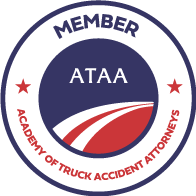It goes without saying that the term “car accident” (and the related terms “auto accident” and “motor vehicle accident”) are commonly used to describe vehicle collisions1 that produce injuries to one or more of the vehicle occupants and/or damage to the property of one or more of those involved. The issue we are addressing herein is whether the term “accident” should be used in this context.
Legal Dictionary.com defines the term “car accident” as follows: “A car accident, also referred to as a “traffic collision,” or a “motor vehicle accident,” occurs when a motor vehicle strikes or collides with another vehicle, a stationary object, a pedestrian, or an animal. While some car accidents result only in property damage, others result in severe injuries or death.” While this definition is fairly straightforward and no doubt tracks with our own use of the term (“car accident”), it begs the question of whether the use of the word “accident” is actually appropriate.
The term “accident” traces back to the Ancient Geek term “symbebekos” from the present participle of “accidere,” which was used to describe falling down, impinging upon, being heard, or to happen. Subsequently, the term was modified when used in Latin, and became “accidens,” and was used to describe a chance event.2 Moving forward in time to the present, the term “accident” is defined as: “any event that happens unexpectedly, without a deliberate plan or cause”.3 Our contention is that the use of the word “accident” is not appropriate in referring to vehicle crashes, because the term “accident” implies that fate led to the collision and the resulting injuries that occurred, when in fact the cause of the crash was the negligence of one or more of those involved.
With extremely limited exceptions, i.e. lightning strikes and other “Acts of God,” vehicle crashes occur because one or more of the individuals involved in the collision were negligent in some way. What is “negligence,” you may ask. “Negligence” is a legal term that refers to instances when the law determines that one party (the “defendant”) is liable to another party (the “plaintiff” who is asserting the claim) because their (the defendant’s) actions or omissions caused the plaintiff to suffer bodily injury and/or damage to their property. A fairly classic real-life example of this is when one person causes their car to “rear end” another person’s car, due to inattention or the like4, causing the person in front to sustain injury and property damage.
The use of the term “accident” is thus technically, and legally, inappropriate when used to describe a vehicle crash, because it arguably implies that the collision occurred as a product of misfortune, or fate, when in fact it occurred because someone was negligent in the operation of their vehicle. The more appropriate terms to describe a collision caused by the negligence of one or more of the persons involved are “car crash,” “vehicle collision,” or “motor vehicle crash.”
It’s interesting to note that academia, and the government, have also engaged in similar analyses and reached similar conclusions. For example, in 1978, Dr. Theodore C. Doege, asserted in a medical journal article that injury is not the result of an “accident” because that term suggests it is a random act,attributable to chance, and lacks fault, which is untrue. As such, Doege argued for replacing the term “accident” with the term “injury.”5
Our country’s federal government agrees that the term “auto accident” is a misnomer. More specifically, on June 8, 1997, the U.S. Department of Transportation’s National Highway Traffic Safety Administration (NHTSA) announced its campaign to encourage the removal of the word “accident” from use and two months later released a proclamation that the word accident would no longer be used by the agency.6
1 Including automobile injury collisions, truck injury collisions, motorcycle injury crashes, car vs. pedestrian injury collisions, etc.
2 Source: Merriam-Webster online Dictionary.
3 Dictionary.com.
4 For those interested in a more technical analysis, pursuant to Oregon law “negligence” is defined as an individual’s actions or omissions that result in a reasonably foreseeable and unreasonable risk of harm to a protected interest of the kind that the plaintiff in fact suffered. See e.g. Farnworth v. Rossetto, 285 Or.App. 10, 19, 396 P.3d 272 (2017).
5 Doege, TC, An Injury is no Accident, N Engl J Med. 1978;298(9):509–510.
6 Anikeeff P. “Crashes Aren’t Accidents” Campaign. National Highway Traffic Safety Administration. 1997 Aug 11;3(11):1–2.








